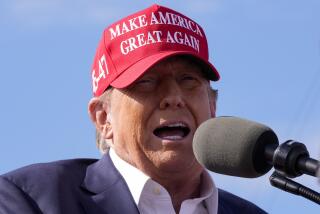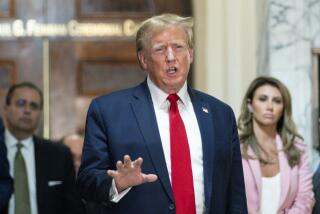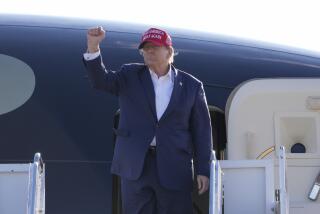A Needed Measure of Insulation
White House aides estimate that President Clinton is facing huge legal fees, up to a staggering $2 million a year. These costs dwarf the chief executive’s annual salary of $200,000 and exceed even the Clinton family’s reported net worth of about $1.6 million. The Clintons, in short, could confront bankruptcy as they defend themselves against charges arising from allegations that predate the 1992 election. It’s for this reason that they are seeking donations to a legal defense fund.
No sitting President has ever done this. Members of Congress do, however, allow themselves legal defense funds, with the House setting contribution limits of $5,000 and the Senate $10,000. The Clinton fund will accept donations of up to $1,000 a year only from individuals, and donors’ names will be made public every six months. We have no problem with that. We do, however, strongly oppose one option the fund’s trustees are said to be exploring. There should be no direct mail or telephone solicitation of funds, for such an approach could too readily be seen as exerting pressure.
The Clintons’ legal bills have two sources. One is the Whitewater inquiry, in which they have had to hire lawyers because of the federal investigation into possible wrongdoing involving a real estate deal the Clintons participated in when he was governor of Arkansas. The second is the federal suit filed in Little Rock by Paula Corbin Jones, who alleges that in 1991 then-Gov. Clinton made a sexual proposal to her that caused her emotional distress and violated her civil rights.
Clinton’s lawyer has asked the judge in that case to rule that a President should enjoy immunity from civil suits arising out of alleged actions that occurred before he took office, with the immunity to end as soon his term of office expires. We support that request.
No one, President or otherwise, is above the law. What concerns us is that the Jones suit or others like it that might be filed could be an instance where the law is used not only for its intended purpose of seeking justice but, deliberately or not, as an instrument that could so distract the President from his official duties as to threaten his essential national leadership. Temporary insulation from such a contingency would not do harm to the processes of justice. But it would protect the institution of the presidency, and that we think is in the nation’s interest.
More to Read
Get the L.A. Times Politics newsletter
Deeply reported insights into legislation, politics and policy from Sacramento, Washington and beyond. In your inbox three times per week.
You may occasionally receive promotional content from the Los Angeles Times.










